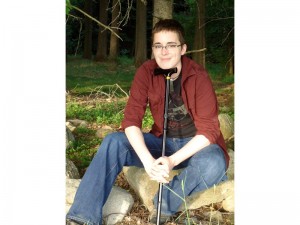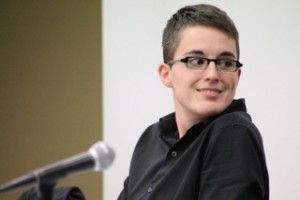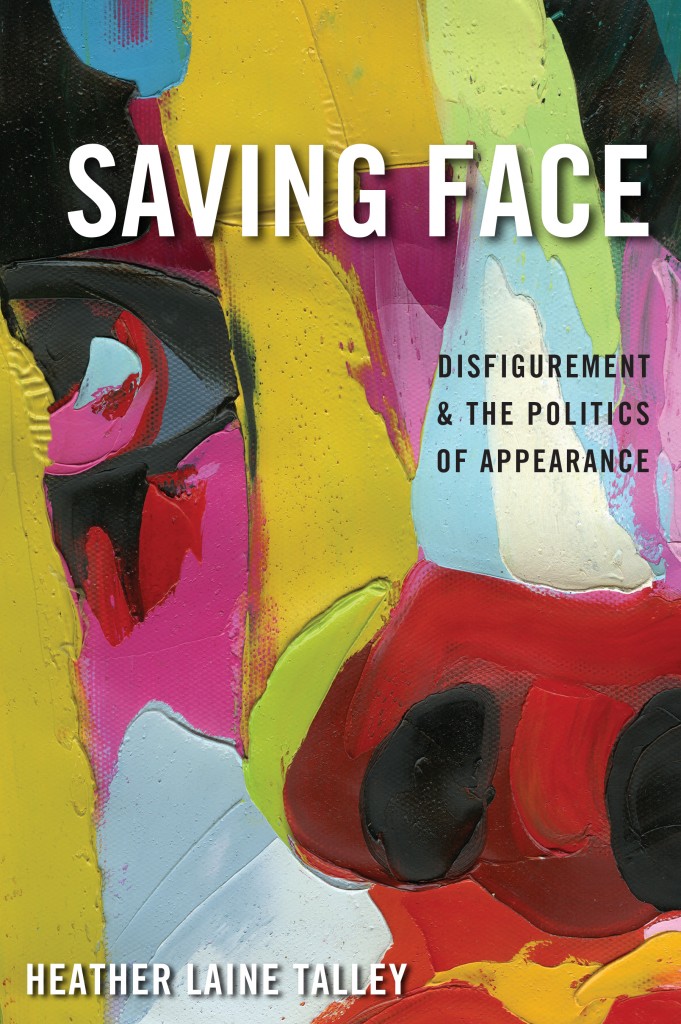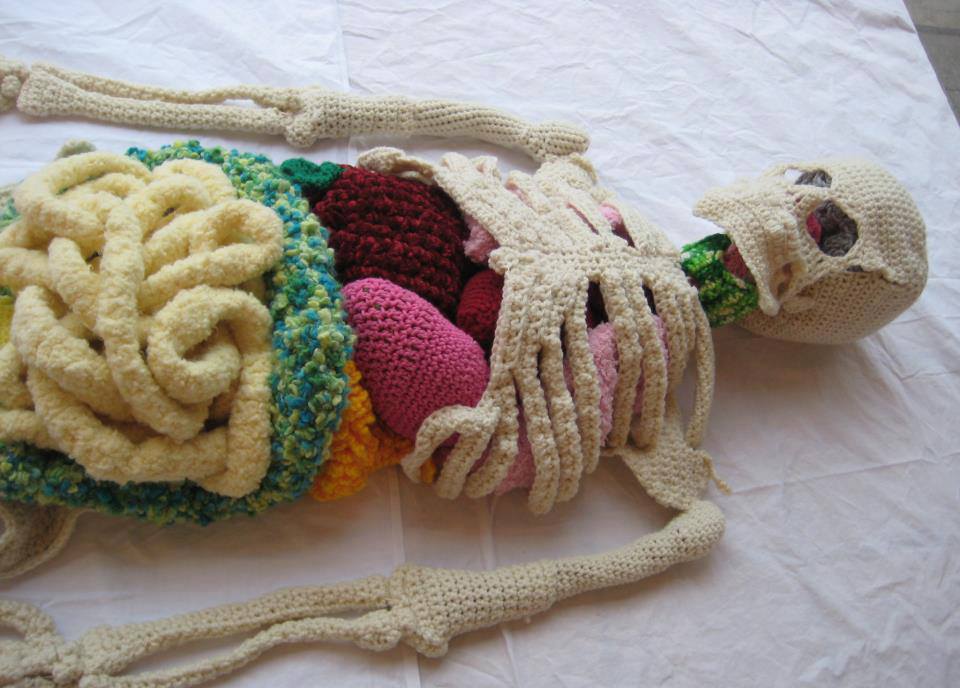Disabilities Studies Gains Cultural Capital? And Now What?
By Alyson Patsavas
I attended my very first Society for Disability Studies conference in the summer before I started a PhD program in disability studies. In one of the sessions, I remember very clearly a senior scholar saying to a room full of graduate students: “Whatever you do, do not get your degree in disability studies. Find a discipline and do disability studies from there. You will never get a job with a disability studies degree.” Long into my first year of coursework I wondered whether I made the right choice.
Fast-forward about five years. I am presenting at the Cripistemologies conference at NYU. I am on a panel with scholars whose work I have long read and admired, talking about what crip forms of knowledge production look like and how they can/will/should cross-pollinate with other fields. I look out at a room filled to capacity and I think, Perhaps, I made the right choice after all. Perhaps, I stand a chance on the job market.
Am I just too deeply embedded in a field that I love to imagine doing anything else, or has disability studies, indeed, reached a level of disciplinary legitimacy? The appearance of several specifically designated disability studies faculty positions in the last year, along with the multiple job postings listing disability studies as one of several desired specializations give the impression that something has changed. Perhaps we are merely seeing the results of the years of emotional, intellectual, and embodied labor performed by the countless scholars who have advocated for the relevance of disability studies within often unwelcoming–and sometimes outright hostile–environments.
Regardless of why or how we got here, we should just be thankful, right? This is precisely what we have been working towards. More interest means that our work is reaching more people. We might even go so far as to hope that this translate into a greater awareness of the widespread inequalities disabled people face and, in turn, increase the number of people fighting to eliminate the myriad forms of disability oppression. Yet, I feel ambivalent—and some days outright suspicious—of the flourishing interest in disability studies precisely because this is far from an inevitable series of eventualities.
An interest in scholarship does not always and evenly translate into a commitment to the ethos, politics, and fight for equality that builds/sustains/enlivens that scholarship. For instance, Chandra Mohanty highlights the ways in which engagement with Third World Feminism often results in little more than a kind of tourism that actually re-colonizes knowledge and “leaves power relations and hierarchies untouched” (239). Mohanty’s detailed discussion of the erasures and injuries that have accompanied the “embracing” of Third World Feminism should serve as a starting point for a discussion about what is at stake in the ways that disability studies is gaining traction in the U.S./Western academy.
With that in mind, I want to return to the Cripistemologies conference. First, let me say that the chance to present work alongside scholars I deeply admire, share a working draft of an article to a room full of engaged thinkers, and meet new colleagues and friends was both invaluable and formative for me as a scholar. That said, this day of critical engagement was—though wonderfully queer—not entirely an instance of intellectual bliss and easy interdisciplinary discussion. I left the conference feeling both enlivened and strangely, slightly discomforted.
I have spent a lot of time since then trying to account for this ambivalence, asking myself what it means that, at a conference devoted to crip-knowledge production, I felt awkward standing up during the Q & A session of our panel to “take care of” my body? How do I make sense of the discomfort I experienced when relocating to a corner of the room during a panel on chronic pain and illness to plug my heating pad in and engage in a quite visible—and slightly disruptive—act of pain management? I am still not sure. But I can say, that this is a discordance that bears pondering.
Of course, it is possible that, feeling slightly out of my depth, I was just experiencing a general level of anxiety. However, it is harder to dismiss the trouble evident in an audience member’s comment that questioned the relevance of disability studies work within/on epistemology at a particular moment when other fields of inquiry have “moved on.” My reaction to this question was far from ambivalent as, among other things, it dismisses the degree to which disabled people have historically and violently been excluded from processes and practices of knowledge production. It is fair to give this audience member the benefit of the doubt. He clearly did not know disability history or the conditions that structure many disabled peoples’ relationship to knowledge…
Yet, somehow, that is precisely the point. It is not a problem not to know. No one can have comprehensive knowledge of anything. The trouble arises—and I think this speaks directly to the issue under discussion—when we think we know enough to make evaluative comments about a field without any real relationship to that field. And this is the fear underlying my ambivalent reaction to the “sudden” interest in disability studies.
To be clear, I am equally ambivalent about drawing hard lines between what “counts” as disability studies and what does not, between who can do disability studies and who cannot. I am, however, worried about what seems to be the ease with which scholars take up disability studies. I worry that this interest reflects little more than a grab for the strange new cultural capital that disability and disability studies seems to have. I worry that cashing in on this capital can too easily happen without any thorough, sustained engagement with the history of the field, its deep roots in the disability rights movement, and the responsibility that disability studies scholars have to disabled people and the fight against systematic disability oppression.
I worry that the engagement with disability will look more like Mohanty’s “tourism” and less like genuine commitments to better understand the complexities of the disability experience as it affects people of different classes, races, genders, sexualities, ethnicities, and disabilities. I worry that this disability cultural capital bears more resemblance to the tokenistic “disability as diversity” campaigns that we are all familiar with than it does to the assertion of crip capital. By this I mean the recognized value in the unique knowledges, perspectives, and experiences attached to disability—the critical leverage–that disability scholars, activists, and artists have spent decades building. Moreover, I worry that those recognizing the value within disability studies programs do so without any acknowledgement that this value is a direct result of that tireless, often disheartening, and labor-intensive struggles of the disability and crip communities.
Again, I am thrilled that more scholars are engaging with disability studies. I desperately want to see more courses and more programs. Yet, I also want to have the attendant conversations about who drives these programs. Who directs them? Who teaches these courses? Who are the imagined students? Will it be the same people who have fought for years with administrators and department heads to create disability studies courses at their universities? Will it be the graduate students who have fought for the legitimacy of their disability studies scholarship? Will it be disabled faculty? Will it be crip faculty, constituted of politicized disabled people and their allies who live, as Alison Kafer argues, in relation to disability (11), either through (chosen) family ties or through a lived commitment to disability justice? Will it be those who enact that commitment daily by creating inclusive classrooms, advocating for more accessible university practices, and teaching about/working against the multiple and veiled forms of disability oppression?
And what of the scholars who engage with disability studies work in other (disciplinary) locations? What about those who put on conferences seeking to facilitate disability studies scholarship and conversations on their campus? What responsibility do they have? Surely we do not want to discourage engagement with our field, our work, and our movement. Yet, if history should teach us anything, it is that we need to be vigilant in ensuring that these questions are asked in faculty hiring committees, in conference planning, and in how we situate our work. By my account, at least, the Cripistemologies conference was a genuine effort to bring disability studies scholarship to the table, to facilitate conversations. It was an effort to call attention to and raise interest in the forthcoming special issue bearing the same name in the Journal of Literary and Cultural Disability Studies. It was a starting point.
I am reminded of a conversation I had with a colleague, Zach Richter. I referred to him as a person with autism. He is Autistic. Or, an Autistic. I could see I had made a mistaken even as the words came out. He very kindly corrected me. When I apologized, Zach said, “We give our allies time.”
I have been thinking a lot about this exchange lately, both as a reminder that, even as we discuss the uneven and sometimes problematic way that disability studies scholarship is being taken up, we have a lot of work to do within disability studies as far as learning from each other. This work, arguably, will be facilitated by the engagement of other scholars from other disciplines, just as attending to the exclusions and erasures that continue within our field will also facilitate our collective project.
I want to end, however, by sitting with Richter’s comment, “We give our allies time,” because there is much we can take from it. We might need to give people time to learn what it means to do disability studies and to do disability studies ethically. However, this time requires a simultaneous commitment to being an ally to those whom the scholarship touches. This means accountability: accountability to the relationship between disability studies, crip politics, and the disability rights movement. We are accountable to Autistics for the language that we use when we talk with them. We are accountable to students with disabilities for the pedagogical tools that we bring into the classroom. We are accountable to disabled people, most of whom will never have access to the academy, and we are accountable to the majority of the world’s disabled population who live outside of the Global North. And our scholarship needs to reflect that accountability. Admittedly, I do not always know what being this kind of an ally, with this kind of accountability, looks like, which is precisely why I am grateful for the time to learn. But I also know that this time is not an excuse for inaction and it comes with a responsibility.
I am prepared to give the scholars who want to take up disability studies the time that it takes for them to learn as well. There is, decidedly, no one way to do disability studies, but I think now is a good time for us to at least ask—and engage more fully with those who are asking—what we want disability studies to do. That said, I do think that there is one way to approach disability studies. That is from a position of humble accountability, with a desire to be an ally–no matter what your relationship to disability is.
Works Cited
Kafer, Alison. Feminist, Queer, Crip. Bloomington: Indiana UP, 2013. Print.
Mohanty, Chandra Talpade. Feminism Without Borders: Decolonizing Theory, Practicing Solitary. Durham: Duke UP, 2003. Print.
___
 Alyson Patsavas has a Masters Degree in Disability and Human Development and is currently a PhD student in Disability Studies with a certificate in Gender and Women’s Studies. She has published an article in a forthcoming anthology Different Bodies: Essays on Disability in Film and Television (2013) and in a forthcoming special issue of the Journal of Literary and Cultural Disability Studies (2014). She is also a co-writer and co-producer on a forthcoming film, Code of the Freaks, that examines representations of disability from a disability culture perspective. Patsavas works at the intersection of disability studies, queer studies, and cultural studies to examine cultural discourses of pain and the politics of knowledge production about pain.
Alyson Patsavas has a Masters Degree in Disability and Human Development and is currently a PhD student in Disability Studies with a certificate in Gender and Women’s Studies. She has published an article in a forthcoming anthology Different Bodies: Essays on Disability in Film and Television (2013) and in a forthcoming special issue of the Journal of Literary and Cultural Disability Studies (2014). She is also a co-writer and co-producer on a forthcoming film, Code of the Freaks, that examines representations of disability from a disability culture perspective. Patsavas works at the intersection of disability studies, queer studies, and cultural studies to examine cultural discourses of pain and the politics of knowledge production about pain.




4 Comments